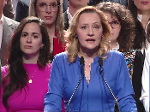Romanians vote in local elections on Sunday which comes with a first for the country's democratic process - mayors are now elected in a single, uninominal, winner-takes-all round. The poll comes at the end of a dull electoral campaign and is expected to be influenced by huge voter apathy.
So far, mayors have been voted in a two-round electoral system. Starting now, there is no second round of elections, a move which analysts have said eliminates the political stakes of the vote in many cities, where differences between the two best placed competitors are large. It also lead to a total lack of candidate involvement in the campaigning process, in Bucharest and other major cities.
Mayors and county council presidents are elected in a single-round election. The candidate with the highest number of valid votes is declared winner. In case the vote is too close to call, a new poll would take place two weeks after the first round, with the top candidates competing again.
Romanians vote for their mayors, city councils, county councils and county council presidents. In Bucharest, people vote both for city and district halls.
The closest battles
The electoral campaign has been felt in a limited number of cities, where candidates of the governing parties and of the opposition are close in the top of the polls. The battle is closest in the cities of Cluj, Braila and Craiova, as well as in Bucharest Districts 3 and 6.
The Cluj city hall is fought for by ex-PM Emil Boc and his Social Liberal Union (USL) rival Marius Nicoara. The neck-to-neck battle may lead to Boc losing the seat he's eyeing for a third term.
In Craiova, the fight is carried by incumbent mayor Antonie Solomon and his USL rival Lia Olguta Vasilescu, with a 3% difference in the polls.
In Bucharest, incumbent District 3 Mayor Liv







